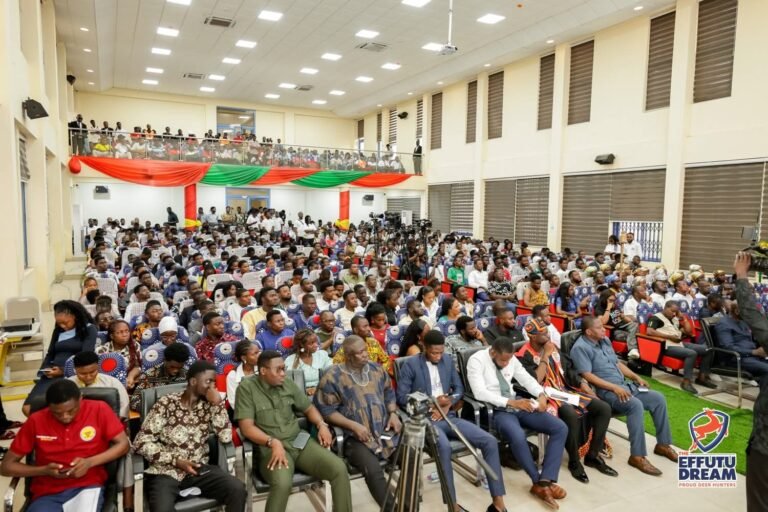
Vice-President Mahamudu Bawumia
Vice-President Mahamudu Bawumia has announced plans by the government to create a new digital platform where tax returns can be filed digitally to ensure ease in individual and organisational works.
That, he indicated, will go a long way to fade out the practice where individuals and organisations need to go to Ghana Revenue Authority (GRA) offices to file tax returns on their activities.
Dr Bawumia made the disclosure yesterday while speaking at the 4th Annual Center of UN Studies Lecture in Accra.
According to the Vice-President, Ghana’s digitisation drive is paying off, adding that “we are making sure that, for example, you can now file your taxes on your mobile phone”.
“You don’t have to go and do the long-winded process of filing taxes. We have redone the tax filing forms so that it is very simple for even the very uneducated, who we are hoping can file taxes. We want everybody to file taxes, even if you have nothing to pay,” the Vice-President added.
The Income Tax Act 2015 (Act 896) and the Revenue Administration Act 2016 (Act 915) enjoin taxpayers to file their tax returns with the Commissioner-General of the Ghana Revenue Authority.
This has to happen not later than four months after the year of assessment for the return of income for the year.
Tax obligation
Meanwhile, the Ghana Revenue Authority (GRA) has called on religious bodies in the Ashanti Region to help in the smooth implementation of the Electronic Transaction Levy (E-Levy).
The Authority believes religious leaders can positively influence their members to better appreciate the importance of the E-levy in national development. The GRA, therefore, urged religious leaders to educate members on the need to pay taxes.
The Authority also educated the religious leaders on how to file tax returns online, via its taxpayer’s portal.
The government has charged the Ghana Revenue Authority to collect over 80.3 billion cedis in revenue this year. The target, the Authority believes, can be achieved if Ghanaians voluntarily honour their tax obligations.
The Ashanti Regional Area Director of GRA, Agnes Akosua Adu-Boateng, who spoke at a sensitisation programme for religious leaders, said even though few challenges were reported on the implementation of the E-Levy Act, efforts were being put in place to resolve all the teething problems.
“As religious leaders, you also have a responsibility to educate your congregation on the need to honour tax obligations. It is important to note that E-Levy will not affect deposit, withdrawal, saving on MoMo wallet. The GRA is also piloting the Electronic VAT System for collection of Value Added Tax,” she stated.
Mrs Adu-Boateng further indicated that the digital platform deployment by GRA is in line with the Commissioner General’s transformational agenda, adding that “an e-commerce registration portal has been developed for non-residents engaged in e-commerce and digital services to charge VAT.”




